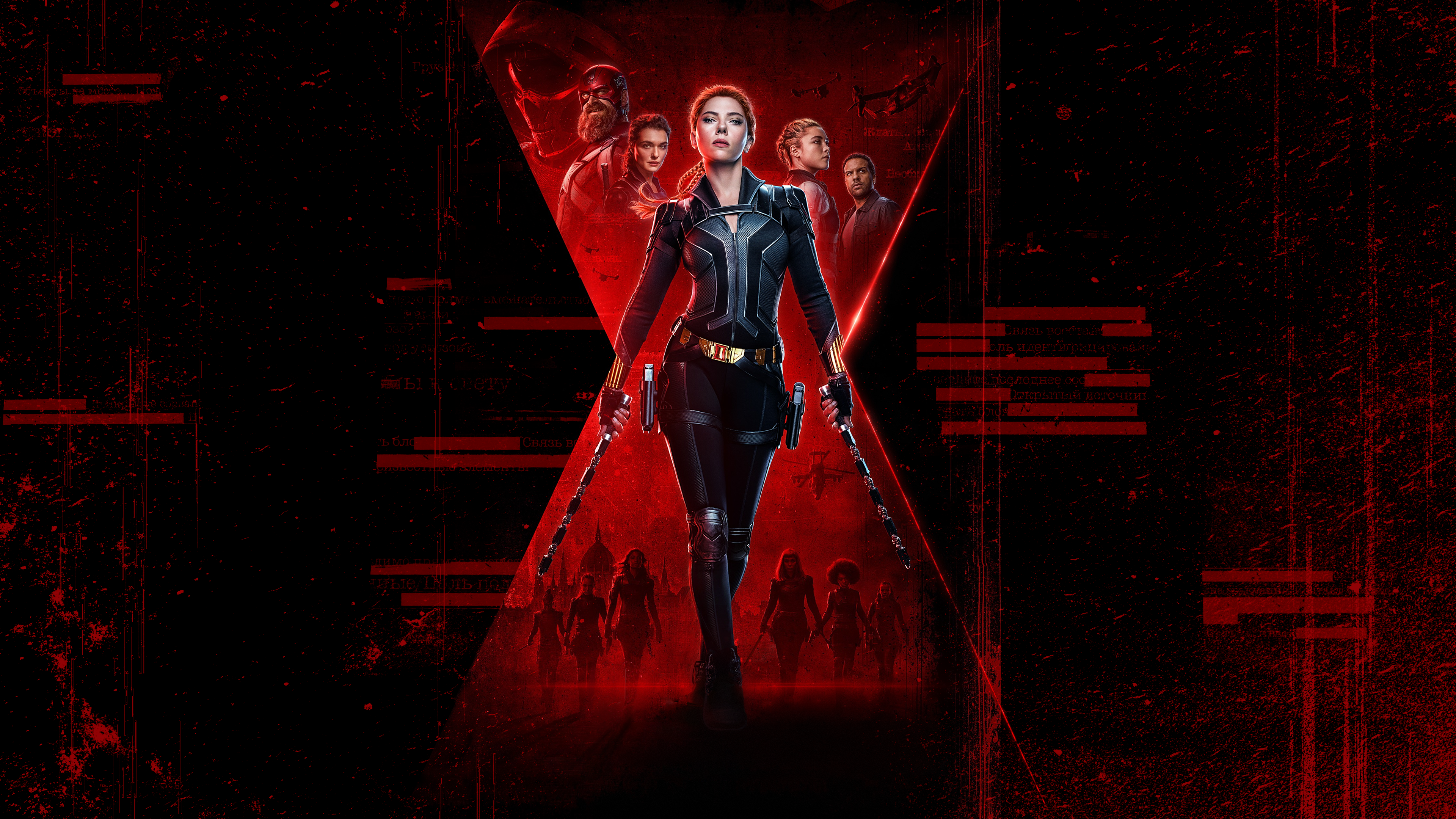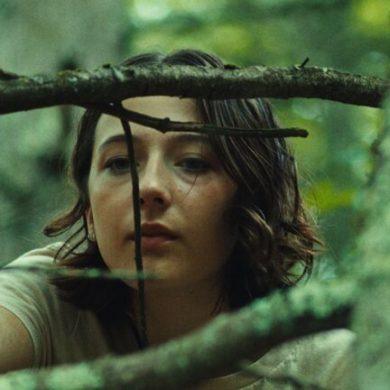Help keep The Curb independent by joining our Patreon.
Every single year since 2008, Marvel Studios have had a film in theatres, except for 2009 and last year. 2020 put everything on hold and the Marvel Cinematic Universe had to wait to continue on the big screen with its hopeful future until now. The worst part about this is that it’s another chapter in Black Widow not being seen by audiences, something that has been a thorn in the side of the MCU since 2012.
With The Avengers, Scarlett Johansson gave audiences a better showcase of Natasha Romanoff and her qualities as a character as well has hints of her dramatic past with Hawkeye in Budapest). Since then, fans of the universe and Johansson herself have been demanding a Black Widow solo film. If characters like Iron Man, Thor, Captain America and even the Hulk (to an extent) can get their solo adventures, why not the only female on the original roster of Earth’s mightiest heroes?
Each year the question was posed, and Marvel Studios president and lead film producer Kevin Feige always gave tactful responses that this was a “story that should be told” and “never say never”. But it didn’t happen for a decade, with Captain Marvel instead being the first female-led MCU film. And now, through an era of uncertainty and a whole year of delays, we have Black Widow.
With that kind of history, it would be a miracle if the resulting film completely held up to the arduous expectations of fans, that it would be something absolutely worth the time. Miracles can happen though.
In this reviewer’s opinion, Black Widow is worth the wait. Johansson has worked in the decade since her debut in the universe to craft the best possible story for her solo outing, hand-picking Australian director Cate Shortland and guiding the writing process along. It’s the same involvement and care other superhero actors like Ryan Reynolds, Hugh Jackman, Chris Hemsworth, and even Wesley Snipes have done when they have a superhero character they know well enough and can make a say as to where they should be going.
What we get is quite a different Marvel film in the very best ways. From the beginning, things are not exactly what we expect. The Marvel Studios fanfare and credits begin everything, and we have a flashback prologue for Natasha’s life with her secretive family. Seems normal. Then, instead of the movie continuing straight on present-day, the flashback ends with a montage-style opening credits sequence, not seen in an MCU film since Iron Man 2.
It makes sense though, as not only does it set the mood for the film being underscored by a dark cover of Nirvana’s “Smells Like Teen Spirit”, but through the montage we’re given a flurry visual information that comes to importance later in the film. This would have otherwise dragged the script down with more exposition and explanation. Show, don’t tell.
Black Widow is set just after the events of Captain America: Civil War, with Natasha Romanoff on the run from the U.S. government. In her hiding, she is suddenly pulled into the remaining effects of her past, such as her adoptive family and the man who crafted her into a deadly weapon, Dreykov (Ray Winstone). Natasha’s “sister” Yelena (Florence Pugh) needs her help to stop Dreykov once and for all and free all the remaining “Widows”, also requiring the help of their adoptive parents Alexei/Red Guardian (David Harbour) and Melina (Rachel Weisz).
Eric Pearson (Thor: Ragnarok, Godzilla vs. Kong) is the credited screenwriter, with a story by WandaVision’s Jac Schaeffer and The Disappearance of Eleanor Rigby’s Ned Benson, and brings to this film the typical Marvel humour that feels improvised on the day (one of the best jokes involving Black Widow’s famous “fighting pose”), but also allows a truth of character to shine through. It’s unfortunate that we have a Black Widow movie 2 years after her character died in Avengers: Endgame (you should already know that) and have it also be set 5 years before that event, meaning that she can’t go through a massive change as it might conflict with the last two Avengers movies. Pearson and Johansson still manage to give her purpose and a way to develop in the interim, with this story of Natasha reconciling with all the lingering threads of her once-forgotten past as a tool for a powerful villain. She is trying to stay well under the radar but the family she thought was either dead or far away in the world comes back to her, forcing her to come to terms with her mistakes and the truth of where she has come from. It’s an emotional journey that resonates quite well.
What struck a strong chord with me was how Cate Shortland, a director known for smaller and more intimate dramas that share little similarities with Marvel movies, keeps her style and interests as a filmmaker layered throughout this film. Her previous works Somersault, Lore and Berlin Syndrome all deal with complicated women who have their fair share of faults and trauma, mostly at the hands of abusive people in their lives, which forces a change in their psychology. Black Widow is the same kind of film. Natasha is complicated and nowhere near perfect, still coming to terms with the amount of people she has killed and the lengths she’s gone escaping her old life. Thor: The Dark World and Captain Marvel, for example, struggled to give audiences an exceptional vision behind the storytelling, but Black Widow FEELS like a Cate Shortland movie, a promising start for the MCU’s Phase 4.
Scarlett Johansson manages to give her best performance as the character in this movie and delivers a touching finale for her role in this universe, even though it’s before her chronological end. We know more about her personality and how she sees the world, and her development here is a great evolution from ideas posed in Age of Ultron about how regretful she is of her upbringing. We learn how she sees familial connection, which leads in nicely to how she connects to the other Avengers in Infinity War and Endgame, and her relation to the true identity of Taskmaster is fascinating in its emotional sensitivity.
Florence Pugh is a standout which is no surprise because she’s a standout in everything. Some have criticised Black Widow for not doing anything interesting with Natasha and only existing as a setup for Yelena’s future in the MCU, and I could not disagree more. While Kevin Feige and the Marvel Studios producers certainly have ideas for her character in other projects, Shortland, Pearson, Johansson and Pugh still put in the work to craft a loving and caring relationship between Yelena and Natasha as sisters. They fight at first and can certainly hold their own against one another, but it becomes far more interesting to see them getting along and bonding for the first time in 20 years. Pugh’s emotional range is as vast as an ocean, and has some of the movie’s best comedic moments, and if she has a future in the MCU, fantastic. As the role stands, Pugh as Yelena still fits perfectly into Natasha’s final story.
David Harbour nails this strange mix of Captain America and “fat Thor” from Avengers: Endgame. The Red Guardian was destined for a greater purpose to be a hero for propaganda but was cast aside and he’s become a rather idiotic and barrelling force of desperate energy. Harbour always brings this goofy, loveable, and self-aware quality to this performances in Stranger Things and Hellboy, and is perfectly cast. He always says the wrong thing, but means the world for his adoptive children and that’s lovely to watch.
Rachel Weisz is only in the flashback prologue and the last 45 minutes of the film but leaves a terrific impact. Melina is a scientist who coped with her grief over her lost children and traumatic purpose by going all into her work unlocking the human mind. She’s cowardly and afraid to stand up to oppressive forces, but with the help of her daughters, she understands what needs to be done. It’s a much smaller role than would usually have Weisz cast in it, but she does excellent work by becoming this caring, complicated yet fully committed mother figure in Natasha’s life.
There’s also O-T Fagbenle as Rick Mason, a private contractor who helps Natasha get things necessary to lay low or to make a big entrance. The character is written to be necessary for the plot, such as providing new outfits and vehicles, but I didn’t get much from him in the grand scheme of the movie’s characters. Mason makes jokes but isn’t that funny, has purpose but isn’t that involved in what’s going on, and cares about Natasha but lacks chemistry with her. It’s an underwritten role played too minimal and could have been easily eliminated with a few expository lines of how Natasha and Yelena suddenly got a helicopter.
Ray Winstone makes a solid impact as villain Dreykov who represents a great diversion for an MCU villain. Instead of being a superpowered or tech-abled bad guy who fights the hero in a big CGI extravaganza, he’s more like Alexander Pierce or Baron Zemo. He’s just a man with power and the means to do what he likes without checks or balances. He doesn’t need powers or martial arts to take over the world. Just the means to exploit the world’s women to do whatever he likes. Winstone is an actor with a tremendous rage in his roles and while his casting as a villain may be to type, he is a formidable force for Natasha to overcome.
Some debate has been raised amongst comic book readers and fans of Taskmaster as to how the character was portrayed in this movie. Taskmaster is traditionally a male mercenary named Tony Masters who can naturally mimic anyone’s movements in battle, but in Black Widow they are a mysterious tool of Dreykov whose identity is kept secret until the end. The abilities remain the same and are a product of genetic and technological manipulation, but the fans of the character out there have declared this to be all wrong and a waste of the character. I disagree. It would still be interesting to have a “Taskmaster” in the future that has a clearer identity and personality, but the truth of this version of the character for this movie is rather incredible. Who Taskmaster really is becomes a lynchpin of Natasha’s entire purpose of tying up loose ends of her past. Her regret and pain over Taskmaster drives her to the very end to save them instead of just killing without remorse. It’s a remarkable twist that I wouldn’t dare take away.
On the technical side, Black Widow is as slick and well-produced as any MCU film. Gabriel Beristain acts as cinematographer and with Shortland’s eye for small emotional moments and some more saturated colour grading, this is one of the better-looking MCU films. Some of the movements and angles chosen are thrilling in quite distinct ways that keep Black Widow feeling unique.
However, it also thematically and visually keeps some consistencies with Captain America: Civil War, notably with the action choreography and large location titles. Shortland maintains an excellent quality for a filmmaker not known for action scenes to make each major piece of action feel like a sequence and not just repetitive scenes or minor moments that feel insignificant. It’s the kind of action that made the last two Captain America movies feel thrilling because a small one-on-one fight can lead to an insane chase with tremendous destruction, but thanks to Shortland’s direction, we never lose track of our character’s geography or their emotional status.
In many ways, Black Widow reminds this reviewer of Mission: Impossible – Fallout, with its numerous aerial action scenes, a motorcycle chase through European streets, and Lorne Balfe’s score which blends perfectly with the kind of emotionally rich movie that Shortland and the filmmakers were trying to craft. It’s a compliment, I assure you, but this movie is not without its flaws.
For one thing, it’s coming out too late. This won’t matter in the grand scheme of things as a proper MCU rewatch would have this on the list between Civil War and Infinity War, as only the post-credits scene has anything relating to events after Infinity War and Endgame. It doesn’t excuse that this female-led MCU movie took so long to be made and had to be second to one of the blandest and most forgettable entries Captain Marvel.
The third act CGI action finale, while spectacular to watch (despite several obvious compositing errors and weightless body doubles), is also a stark contrast to the mostly practical action sequences and darker and more realistic tone the rest of the movie was working with. The dinner scene between all four members of the “Black Widow family” is the best scene of the whole film, but eventually gets interrupted by the Marvel formula to just get to a big expensive final battle. We are still given fantastic moments for all of the main characters, and Natasha’s confrontation with Dreykov keeps things consistently realistic and down-to-the-bone, but the whole section feels at odds with what came before.
Black Widow is remarkably unique in many ways, but will feel like typical Marvel Studios fare in others. The humour interrupting serious moments is to always be expected, and of course there’s a big battle. What sets it all apart is how Cate Shortland handles it, what kind of emotional complexities she brings to Natasha’s final story, how Eric Pearson layers in dark themes of human trafficking as well as touching moments that craft enjoyable characters, and how Johansson, Pugh, Harbour and Weisz bring it all to life. After seeing it twice in theatres and letting my thoughts evolve over two weeks, I can confidently say that Black Widow is an above-average MCU film with a refreshing sense of complexity and an entertaining scale of spectacle. There is far more here to love, and if only we had it sooner.
Black Widow is in theatres now. If you have the choice, see it there instead of Disney+ Premier Access




